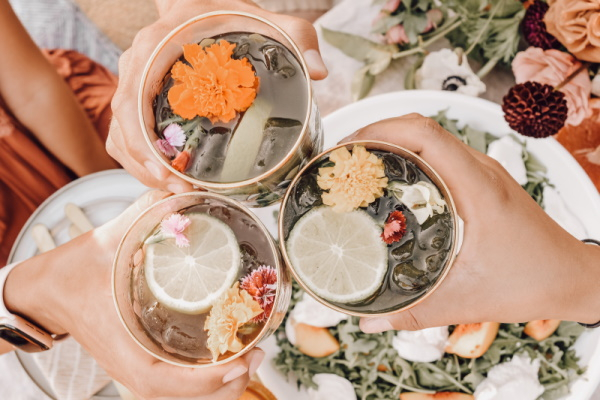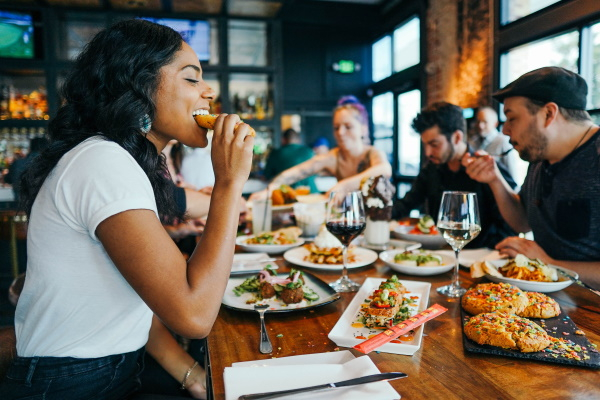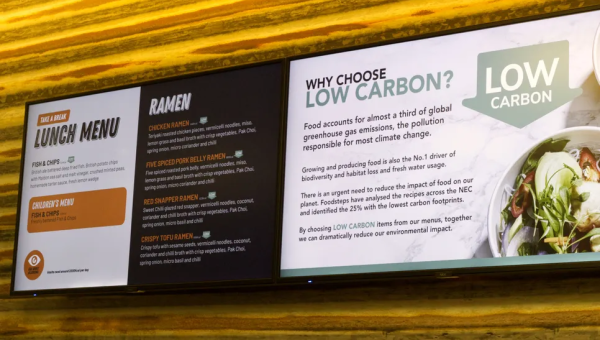The Planner Guru highlights three food trends that are driving shifts in event catering best practice.
Trend #1 Healthy
- Catering for different diets and allergies: From intermittent fasting and keto diets to coeliac disease, event planners need to be able to understand and accommodate special dietary requests. Equally, service staff need to be educated about what these different diets involve, and be clued-up about what ingredients are in the dishes being served, and what substitutions are available.
- No- or low-alcohol options: Tracy Stuckrath, a certified event planner and food and allergy expert, as well as founder of Thrive Meetings, says that 30% of Americans do not drink or will stop after one drink. This means it’s an underserved segment of the market that needs more exciting options than fizzy beverages or sparkling water, which is where de-alcoholised wine and spirits, as well as interesting mocktails, could fill the gap.

- Considering the effects of food: A greater awareness about how caffeine and sugar can affect our energy, mood and focus has seen a move to limiting them at events and serving more blood-sugar-friendly options. After all, no planner wants their delegates to feel tired and irritable. Hello berries, nuts, seeds and broccoli!
Trend #2 Sustainable
- Plant-based or heavily plant-focused menus: A report by the World Wild Fund for Nature (WWF) shares that adopting a plant-based diet can reduce food-based greenhouse gas emissions by at least 30%, wildlife loss by up to 46%, and premature deaths by 20% (an interesting overlap with the healthy eating trend). This movement has seen consumers embrace eating more plants as well as meat substitutes.
- Looking at the food chain, farm to fork: Understanding where food comes from, how it was produced, and what is being done by the producer to achieve a net-zero emissions target are becoming important considerations for F&B when sourcing ingredients.
- Cutting down on waste: A WWF report reveals that roughly a third of all food produced in South Africa is wasted. In finding ways to reduce waste, chefs are looking at how to serve ‘nose to tail’ meat dishes (including the typically less desirable organ meat), as well as ways to serve food to cut down on waste – such as using ‘family table’ setups, where guests can help themselves from large bowls set out at each table.

READ: How to tackle food waste in the events industry
Trend #3 Local
- Hyper-local ingredient sourcing: While necessity during lockdown might have driven people to purchase more locally produced goods, it’s a practice that has gained popularity because of its sustainable benefits while also helping to support local farmers and businesses. Many venues now have a policy on sourcing ingredients from within a specified kilometre radius.
- Ethnic cuisine on the rise: Choosing locally grown ingredients has also encouraged a rise in popularity for ethnic cuisines, which typically use these ingredients. This is great for events and incentives that want to share the flavours of a place.
A carbon labelling experiment
As people seek out better ways to eat for our and the planet’s health, some interesting options are emerging. One is carbon labelling, which two venues – the National Exhibition Centre and the International Convention Centre, both in Birmingham, UK – are trialling. They will include carbon labels on their menus to help conference delegates make “more informed, sustainable choices”.
More than 1 800 recipes will be assessed for their carbon impact and labelled accordingly. This could prove a useful tool for food service companies, who will be able to view the impact of each ingredient for recipes they upload, and possibly start to adapt their menu design to be increasingly sustainable. Delegates will also gain a greater understanding of the impact their choices can have, which could also have a long-lasting effect.





